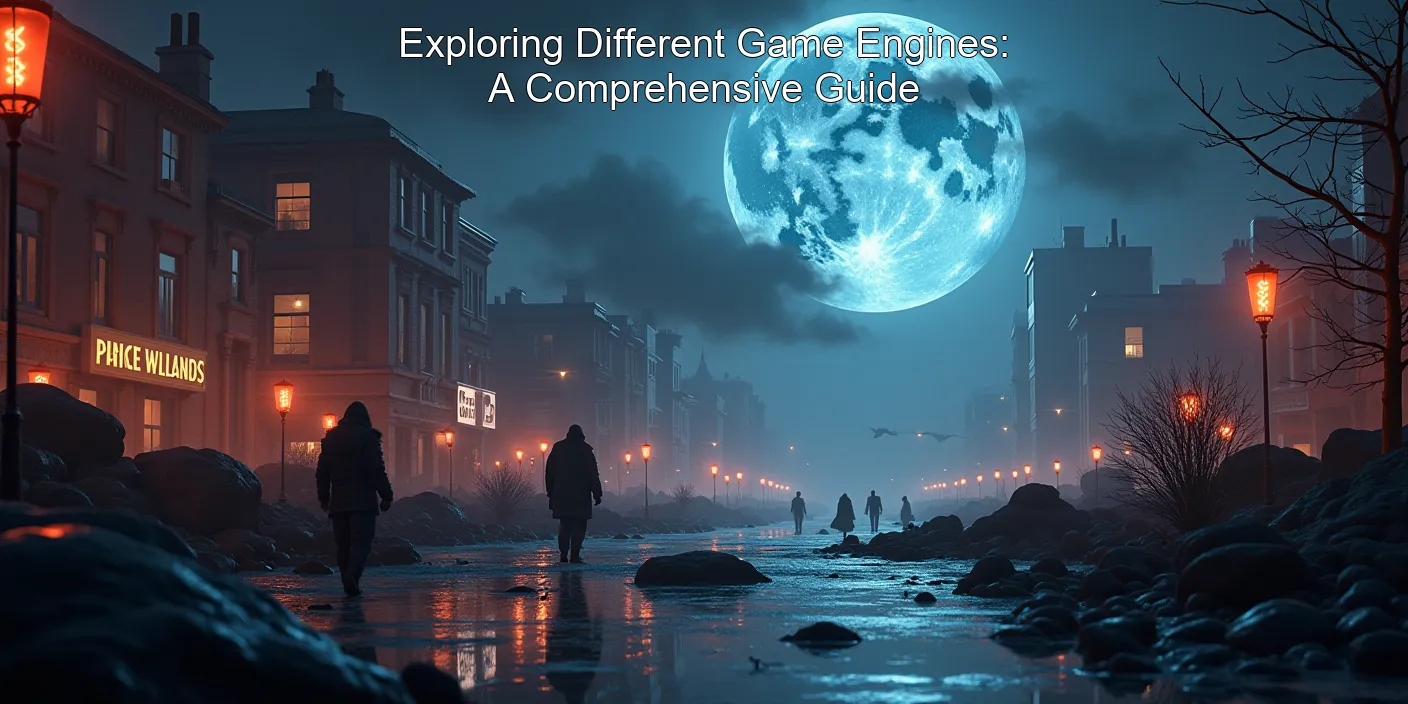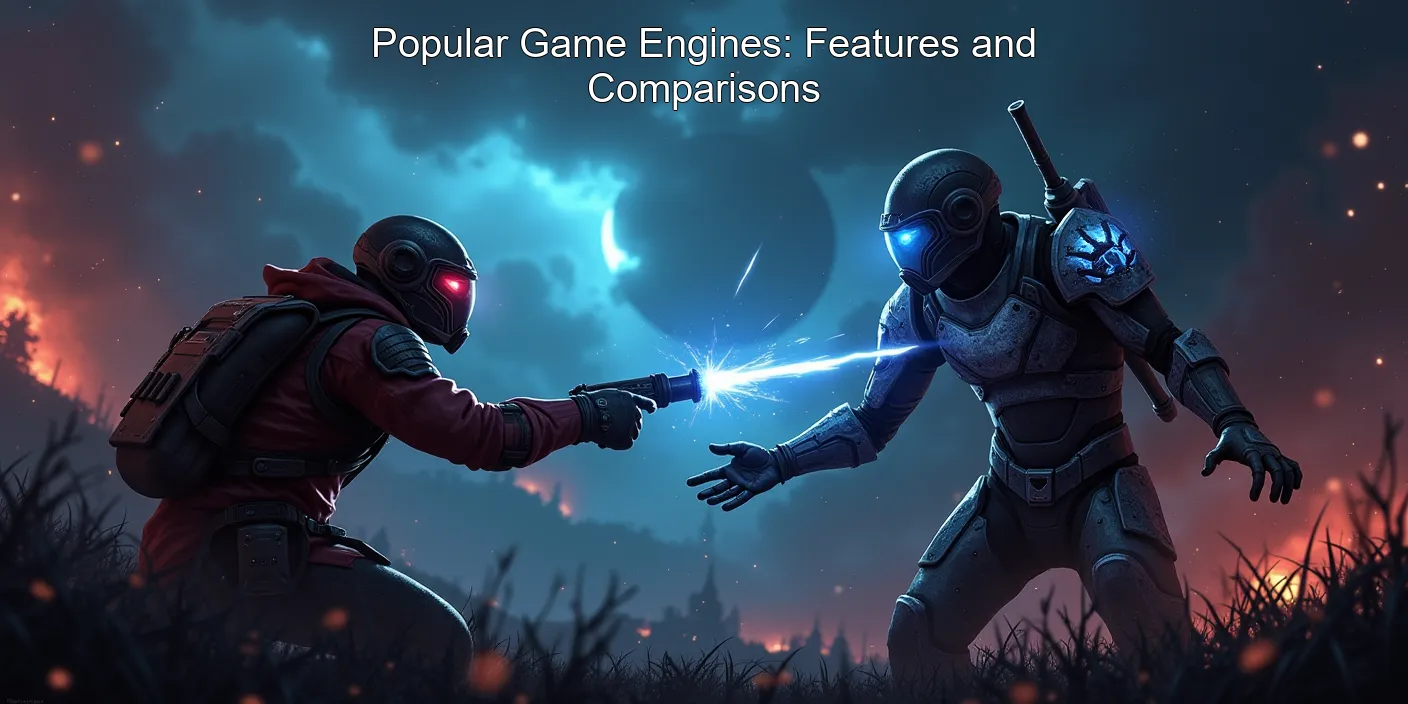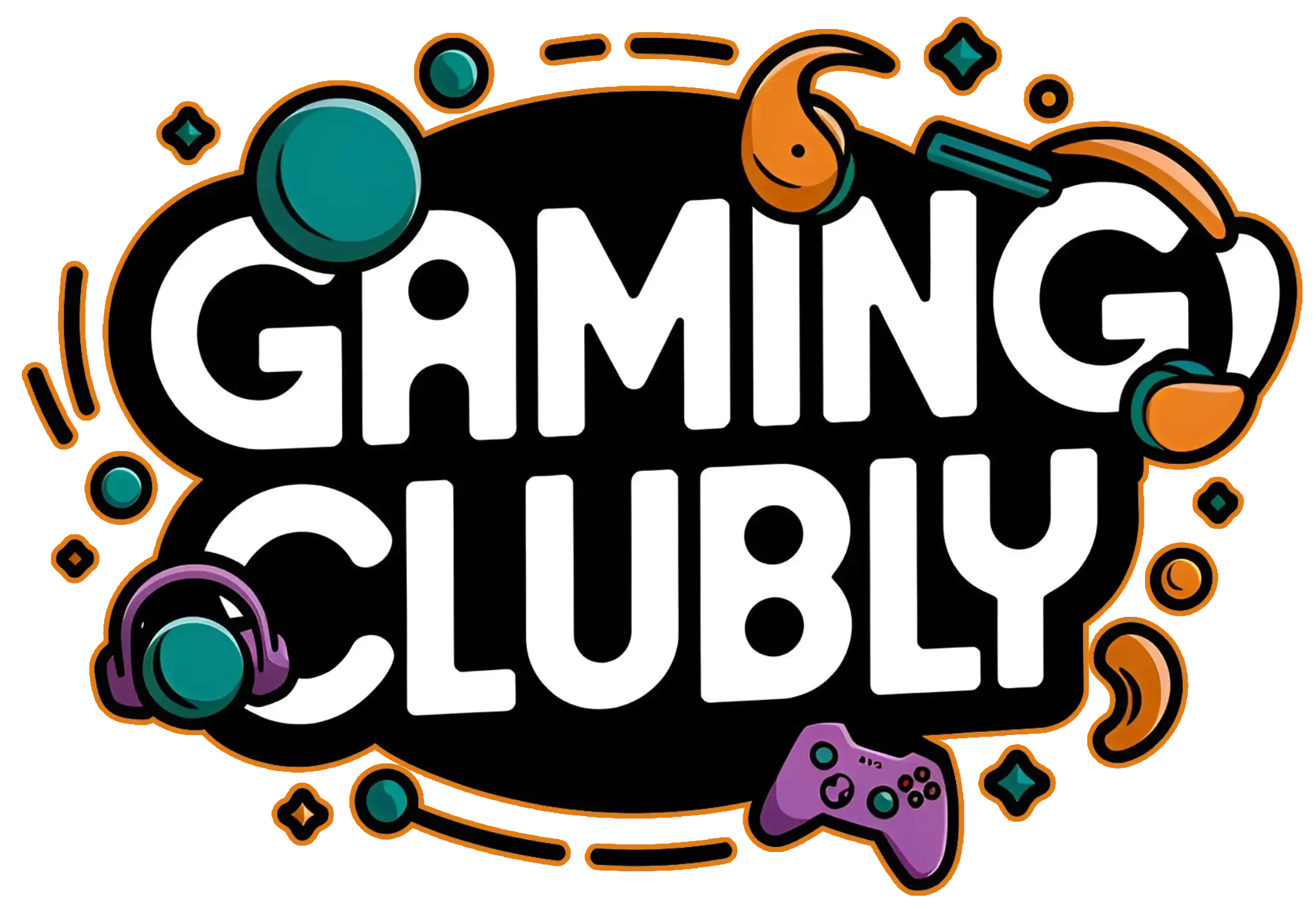Game Engines Unveiled: Powering the Future of Interactive Entertainment
| Engine | Key Features | Popular Games |
|---|---|---|
| Unreal Engine | Photorealistic graphics, Blueprint visual scripting | Fortnite, Gears 5 |
| Unity | Cross-platform development, Asset Store | Hollow Knight, Cuphead |
| CryEngine | Advanced lighting, Sandbox editor | Far Cry series, Kingdom Come: Deliverance |
Game engines are the backbone of modern video game development, providing developers with powerful tools to bring their creative visions to life. Let’s explore the diverse landscape of game engines and their unique capabilities.

“Powering Creativity: Exploring Diverse Game Engines”
#GameEngines, #DevelopmentTools, #GameDev
- Unreal Engine: Known for its stunning visuals and robust performance
- Unity: Versatile and user-friendly, ideal for indie developers
- CryEngine: Specializes in creating immersive, photorealistic environments
- Godot: Open-source engine gaining popularity in the indie scene
“The right game engine can make or break a project. It’s not just about graphics, but also about workflow, community support, and scalability.” – John Carmack, legendary game developer
Frequently Asked Questions
Q: Which game engine is best for beginners?
A: Unity is often recommended for beginners due to its user-friendly interface and extensive learning resources.
Q: Can I create AAA-quality games with free engines?
A: Yes, engines like Unreal and Unity offer free versions capable of producing high-quality games, with revenue-based licensing for commercial projects.
Q: How important is engine choice for game performance?
A: Engine choice significantly impacts performance, but optimization skills are equally crucial for achieving smooth gameplay.
Tips for Choosing the Right Game Engine
- Assess your project’s requirements and scale
- Consider your team’s expertise and learning curve
- Evaluate the engine’s community and support resources
- Analyze the licensing costs and revenue sharing models
- Test the engine with small prototypes before committing
According to a 2021 survey by Game Developer Magazine, Unity is used by 61% of game developers, followed by Unreal Engine at 23%, showcasing the dominance of these two engines in the industry.
Emerging Trends in Game Engine Technology

| Trend | Impact | Examples |
|---|---|---|
| Real-time ray tracing | Enhanced lighting and reflections | Cyberpunk 2077, Control |
| AI-assisted development | Faster asset creation and bug detection | Unity ArtEngine, NVIDIA GameWorks |
| Cross-platform compatibility | Seamless deployment across devices | Fortnite, Genshin Impact |
The world of game engines is constantly evolving, with new technologies pushing the boundaries of what’s possible in interactive entertainment. Let’s delve into some exciting trends shaping the future of game development.
“Game Engines: Pioneering the Future of Interactive Entertainment”
- Real-time ray tracing for photorealistic lighting and reflections
- AI-assisted development tools for faster asset creation
- Improved cross-platform compatibility for wider reach
- Virtual production techniques blending film and game development
“The line between game engines and film production tools is blurring. We’re entering an era where real-time rendering is revolutionizing both industries.” – Kim Libreri, CTO of Epic Games
Q: How are game engines adapting to next-gen consoles?
A: Engines are optimizing for features like ray tracing, faster load times, and higher frame rates to leverage next-gen hardware capabilities.
Q: Will WebGL and browser-based engines become more prevalent?
A: Yes, with improving web technologies, browser-based engines like PlayCanvas are gaining traction for instant-play games.
Q: How are game engines incorporating VR and AR technologies?
A: Many engines now offer built-in VR and AR development tools, making it easier to create immersive experiences across multiple platforms.
Best Practices for Staying Current with Game Engine Technology
- Regularly attend game development conferences and workshops
- Participate in online communities and forums dedicated to game engines
- Experiment with beta versions and new features of your preferred engine
- Follow industry leaders and engine developers on social media
- Collaborate on open-source projects to gain hands-on experience
A recent report by Grand View Research predicts the global game engine market will reach $3.2 billion by 2027, growing at a CAGR of 14.8% from 2020 to 2027, indicating the increasing importance and investment in game engine technology.
As we’ve explored the diverse world of game engines, it’s clear that choosing the right tool is crucial for success in game development. Whether you’re an indie developer or part of a large studio, understanding the capabilities and trends in game engine technology is essential for creating compelling interactive experiences. For more insights into the technical aspects of game development, check out our Game Dev Insights section.
The collaborative nature of game development extends beyond the studio. Discover how Gaming Communities are shaping the future of interactive entertainment. For those interested in the social aspects of gaming, our Multiplayer Games category offers in-depth looks at the latest trends in online gaming.
Stay tuned to our PC News for the latest updates on hardware advancements that are pushing game engines to new heights. The synergy between cutting-edge hardware and sophisticated game engines continues to redefine what’s possible in the world of gaming.
Exploring Different Game Engines: A Comprehensive Guide

| Key Aspect | Description |
|---|---|
| Definition | Software framework for game creation |
| Primary Function | Simplify game development process |
| Common Features | Rendering, physics, scripting, AI |
Game engines are the powerhouses behind your favorite video games. They’re like the secret ingredients that make game development possible, offering a range of tools and features that bring virtual worlds to life. Let’s dive into the fascinating world of game engines!
“Unlocking Game Engines: Essential Tools for Virtual Worlds”
- Rendering: Creates stunning visuals
- Physics: Simulates realistic movements
- Scripting: Enables game logic and interactivity
- AI: Brings non-player characters to life
“A good engine makes development 10 times faster. A bad engine makes it 10 times slower.” – John Carmack, co-founder of id Software
FAQ: Game Engines Demystified
Q: What’s the difference between 2D and 3D game engines?
A: 2D engines focus on flat, two-dimensional graphics, while 3D engines create immersive, three-dimensional environments.
Q: Can I make games without using a game engine?
A: Yes, but it’s much more challenging and time-consuming. Game engines provide pre-built tools that significantly speed up development.
Q: Are all game engines suitable for beginners?
A: Not all. Some engines like Unity and Godot are more beginner-friendly, while others like Unreal Engine have a steeper learning curve but offer more advanced features.
Popular Game Engines: Features and Use Cases
| Engine | Best For | Notable Games |
|---|---|---|
| Unity | Mobile, 2D, 3D | Pokémon Go, Cuphead |
| Unreal Engine | AAA, Photorealistic | Fortnite, Gears 5 |
| Godot | Indie, Open-source | Sonic Colors: Ultimate |
Choosing the right game engine can make or break your project. Each engine has its strengths and weaknesses, catering to different types of games and developer skill levels. Let’s explore some popular options:
- Unity: Versatile and beginner-friendly
- Unreal Engine: Powerful for high-end graphics
- Godot: Open-source and lightweight
- CryEngine: Specializes in photorealistic environments
“Unity’s asset store is a game-changer for indie developers. It’s like having a team of artists at your fingertips.” – Anonymous indie developer
FAQ: Choosing the Right Engine
Q: Which engine is best for mobile game development?
A: Unity is often considered the go-to engine for mobile games due to its cross-platform capabilities and optimized performance.
Q: Is Unreal Engine only for big studios?
A: While popular among AAA studios, Unreal Engine is also used by indie developers, especially for games requiring high-quality graphics.
Q: What makes Godot unique?
A: Godot is completely free and open-source, with a small file size and no licensing fees, making it attractive for indie developers.
Tips for Choosing Your Game Engine
- Consider your game’s genre and platform
- Evaluate your team’s skill level
- Look at the engine’s community and support
- Check licensing costs and revenue sharing models
- Try out demos before committing
According to a 2021 survey by Game Developer, Unity was used by 61% of game developers, followed by Unreal Engine at 23%. This shows the dominance of these two engines in the industry.
Ready to dive deeper into game development? Check out our Game Dev Insights for more expert tips and tricks. And don’t forget to join Gaming Communities to connect with fellow developers!
Whether you’re creating the next big Multiplayer Games hit or staying up-to-date with the latest PC News, understanding game engines is crucial. Happy developing!
| Key Aspects | Description |
|---|---|
| Definition | Software framework for game creation |
| Main Functions | Rendering, physics, scripting, AI |
| Popular Engines | Unity, Unreal Engine, Godot |
Game engines are the backbone of modern game development. They provide developers with:
- Powerful rendering capabilities
- Physics simulation tools
- Scripting languages for game logic
- Asset management systems
“A good game engine is like a well-oiled machine, allowing developers to focus on creativity rather than technical hurdles.” – John Carmack, co-founder of id Software
FAQ: Game Engine Basics
Q: What is a game engine?
A: A game engine is a software framework designed to create and develop video games.
Q: Do I need programming skills to use a game engine?
A: While programming knowledge is beneficial, many modern engines offer visual scripting options for beginners.
Q: Can I make professional games with free game engines?
A: Yes, many successful games have been created using free engines like Unity and Godot.
When choosing a game engine, consider these tips:
- Assess your programming skills and learning curve preferences
- Determine the type of game you want to create
- Consider the platforms you want to target
- Evaluate the community support and resources available
According to a 2021 survey by Game Developer, Unity is used by 61% of game developers, followed by Unreal Engine at 23%.
Popular Game Engines: Features and Comparisons

| Engine | Best For | Language |
|---|---|---|
| Unity | Mobile, 2D, 3D | C# |
| Unreal Engine | High-end 3D | C++, Blueprints |
| Godot | Indie, 2D, 3D | GDScript, C# |
Each game engine offers unique features:
- Unity: Versatile, great for cross-platform development
- Unreal Engine: Photorealistic graphics, powerful for large-scale projects
- Godot: Open-source, lightweight, and community-driven
“Choosing the right engine is crucial. It’s not just about features, but also about how well it aligns with your team’s skills and project goals.” – Tim Sweeney, CEO of Epic Games
Q: Which engine is best for beginners?
A: Unity is often recommended for beginners due to its user-friendly interface and extensive learning resources.
Q: Can I switch engines mid-project?
A: While possible, it’s generally not recommended due to the significant time and resource investment required.
Q: Are there specialized engines for specific game genres?
A: Yes, engines like RPG Maker for role-playing games or Construct for 2D games cater to specific genres.
Tips for selecting the right game engine:
- Try out multiple engines before committing
- Check the licensing terms and costs
- Look at games similar to your project idea
- Consider the long-term support and updates
A study by Statista shows that the global game engine market size is expected to reach $3.21 billion by 2024, highlighting the growing importance of these tools in the gaming industry.

For more insights into game development tools and techniques, check out our Game Dev Insights section. If you’re interested in the social aspects of gaming, explore our Gaming Communities articles. For those focused on collaborative gameplay, our Multiplayer Games category offers valuable information. Stay updated with the latest in gaming technology by visiting our PC News page.



